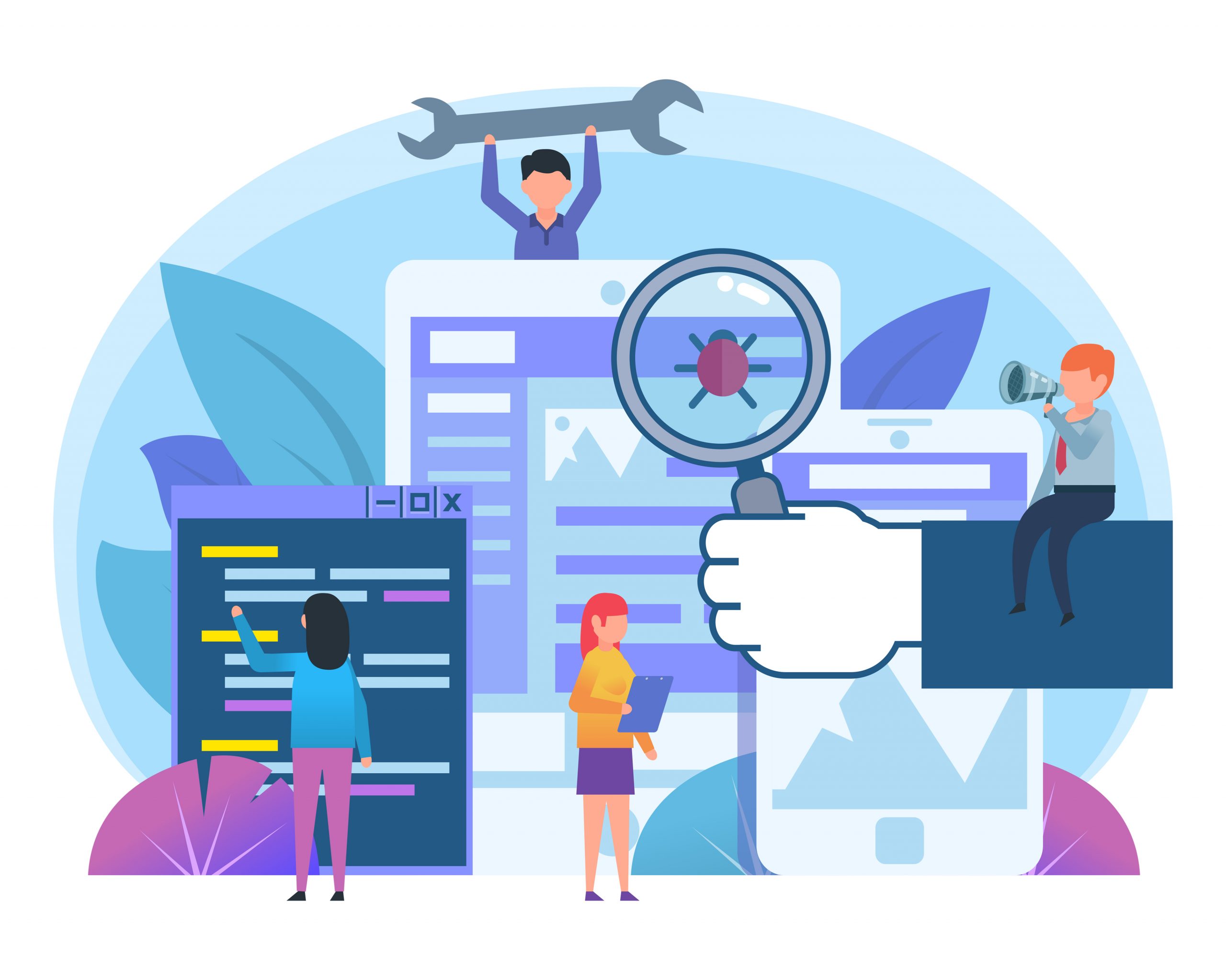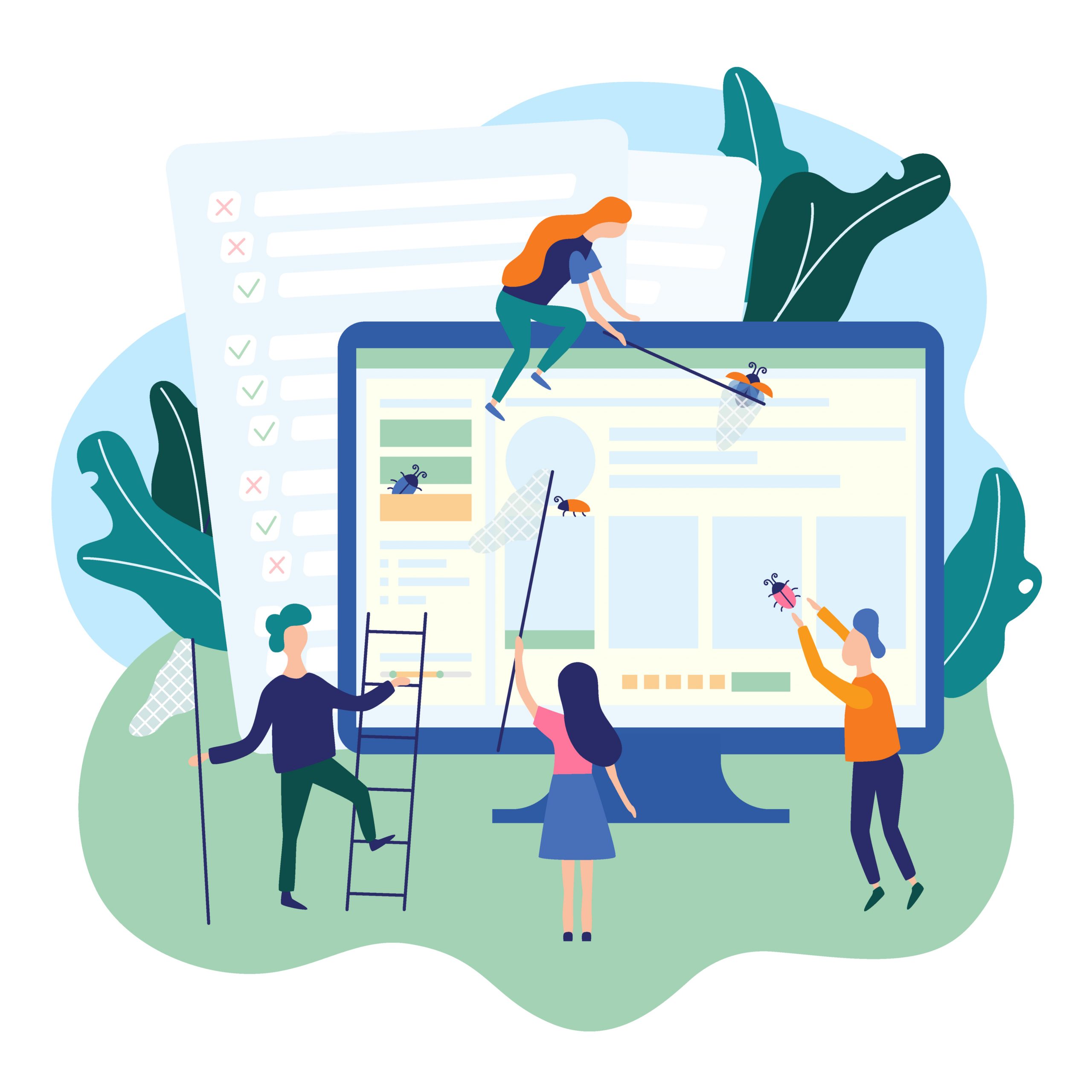By Yanique Dickson
Trying to land a job in a slow market is rough. It’s even harder if your area of expertise isn’t the one most in-demand or if you’re hoping to transition into a new career. I know because I’ve been there. I’ve recently transitioned into a career in software testing from a chemical engineering background. Before I decided to transition, I spent years trying to land a job in engineering, and my “tech” knowledge stopped at an introductory IT course at university. I started digging into new career options and discovered I had the skills to be a good software tester. After a few months, I was able to land my first testing role. In this article, I’ll share my experience and give you some tips on how you can transition from a non-IT background into software testing.
Is Software Testing the Right Career for You?

Software testing is checking a piece of software to find and report bugs or issues, making sure it is easy to use and something people will want to use, and that it meets functional and non-functional requirements. Software testers also participate in daily meetings, collaborate with developers, and bring innovative ideas to their teams. Frequently these are simple and valuable ideas that may, for example, focus on the quality of the user experience or quality of the product. Certain skills, beyond the technical know-how, make for a good software tester. These include:
- good communication skills;
- great attention to detail;
- being flexible and quick to learn;
- being a constant learner; and
- being innovative and analytical.
Before you decide to transition into software testing, assess your skills to see if it is a good fit for you. Here is a skills assessment quiz you can complete: Is Software Testing Right for You? If you decide to make the transition, think about why you want to transition, and note any skills you have that make you a good fit for the role. Also, make a note of skills you think you may lack; if you are really interested in software testing, you can always work on improving these. It’s important to know your answers since these are questions that employers will likely ask you.
Learn the Basics of Software Testing

Coming from a non-IT background, I didn’t know anything about testing outside of what I researched and learned on my own, so naturally, I had to start at the basics. I enrolled in QualityWorks’ Software Testing Bootcamp and was able to learn from experienced testers. This helped me to build a solid foundation, which went a long way when I started working as a tester. Another boot camp option with really good content can be found here on Udemy.
You can also choose to take a course. This can be done in addition to a boot camp in order to provide you with more learning experience, or as an alternative if there are no suitable boot camp options. Two courses with amazing content are Software Testing Masterclass (2021) – From Novice to Expert and In-Depth Software Testing Training Course From Scratch.
To continuously learn and grow in the testing space, there are tons of resources online that you can take advantage of. These include:
- Test Automation University, where I have taken a few courses on test automation. It consists of different learning paths that can get you started with automation testing.
- Ministry of Testing, which has a really good online learning platform. There are courses, podcasts, and a great online community that you can interact with.
- Test Guild, which also has a large collection of podcasts and blogs on software testing, as well as an online community you can join.
Get a Certification

Having a software testing certificate will show employers that (1) you have the requisite knowledge, (2) you have put in the work, and (3) you are ready to make the transition you desire. The first step I took in my transition was to get a certification, specifically the ISTQB Certified Tester. I like the ISTQB because it has a wide range of certifications you can take advantage of as you progress in your career, and their certifications are valid for a lifetime. They have comprehensive syllabi equipped with great content that you can use for studying, and they also have sample exams available. For me, the most attractive part of this was only having to pay for the certification exam and nothing else. If you are studying for the ISTQB certification, and you prefer watching videos to reading, here is a YouTube series that covers the Certified Tester syllabus. In addition to the Certified Tester, the channel also has content for other ISTQB certifications. Another good certification for beginners is the Certified Associate in Software Testing certificate; you can visit this page for information about registration, cost, and the syllabus.
Get Experience in Testing

My first official testing job was part-time at QualityWorks, just a few hours per week. I got to work alongside testing professionals and learn from them, which was an invaluable experience. A few months later, I was able to land a full-time position at the company. It’s important to remember that, while getting knowledge from courses and having a certificate have their weight, employers may understandably be more willing to hire more experienced persons. While this may not always be the case, be open to entry-level positions such as internships, part-time positions, and even freelance testing gigs. These opportunities are good for getting into the world of testing and will be the building blocks for a great resume. While you wait on a permanent testing role, do some research to find companies in your area or companies that remotely offer part-time or internship jobs. If you are interested in freelance testing jobs, you can check out websites like uTest and Upwork as well.
Start Your Transition

If you believe you have the skills to be a good tester, don’t be afraid to jump in and start learning. Go for that certification if you need more leverage to start working as a tester. Believe me, when I started learning, I had my doubts, but after getting my certificate, going through the boot camp, and getting my first testing job, I realized I had nothing to fear — and the only thing left for me to do was continued self-improvement.
